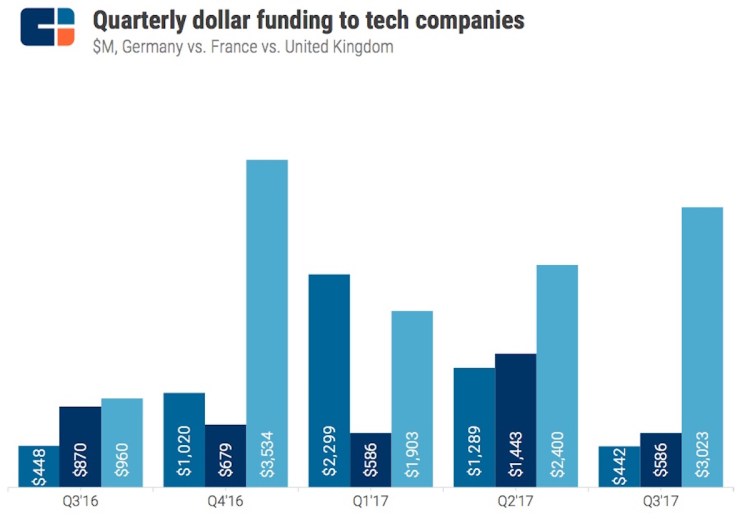Not only has the decision to leave the European Union not dented London’s startup scene, it seems to have actually widened its lead as Europe’s leading fundraising destination.
According to a report from CB Insights, U.K. startups attracted $3.02 billion in venture capital in the third quarter. That’s a bit below the peak reached in Q4 2016, when U.K. startups attracted $3.5 billion. But it’s more than triple the amount raised one year ago, and the third straight quarter-over-quarter increase.
The positive results were driven by six companies that raised rounds larger than $100 million in the quarter.
France remained the second largest in terms of fundraising, topping Germany for the second straight quarter. But lacking similarly big deals, the $586 million raised in France was down from the previous quarter and from one year ago. German startups raised $442 million but followed a similar dip from the previous quarter and from a year ago.
June 5th: The AI Audit in NYC
Join us next week in NYC to engage with top executive leaders, delving into strategies for auditing AI models to ensure fairness, optimal performance, and ethical compliance across diverse organizations. Secure your attendance for this exclusive invite-only event.
The bottom line: The U.K. — long Europe’s startup star — continues to pull further ahead. It’s a surprising twist that poses some interesting and unexpected challenges as the U.K. renegotiates its relationship with the continent over the next two years.
The concern for many in London is that Brexit could limit access to talent as well as shifting fundraising dollars to countries that remain in the EU and can therefore guarantee access to that market. But for the moment at least, investors don’t seem too concerned.
Likewise, if VC dollars continue to concentrate in London, European startups may find themselves facing difficult choices about whether to relocate there, even if it means leaving the EU zone.
Of course, Brexit negotiations are ongoing, and no one has a clue what the final deal will look like. But for now, it seems London may not be facing the doomsday scenario some had initially feared.

